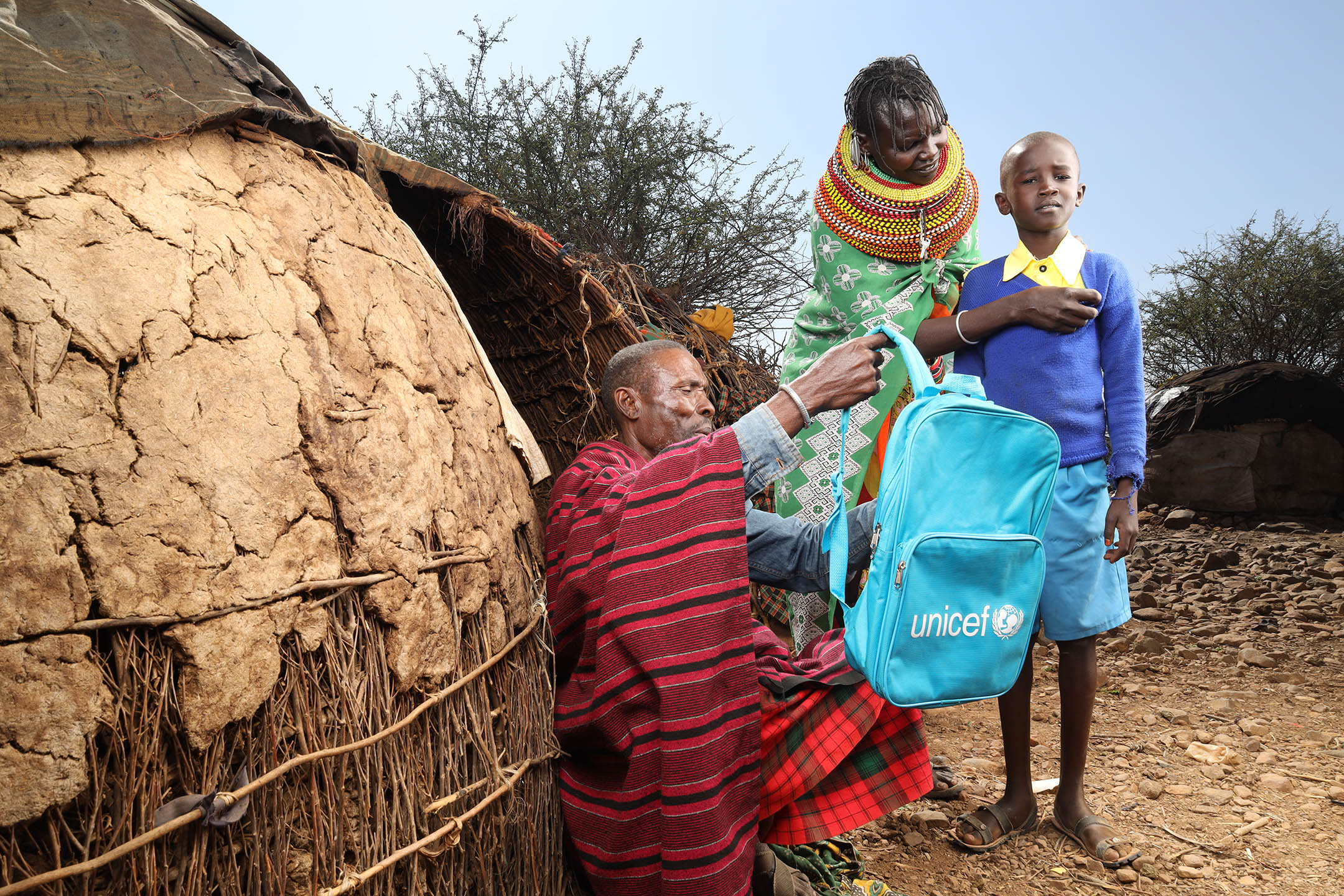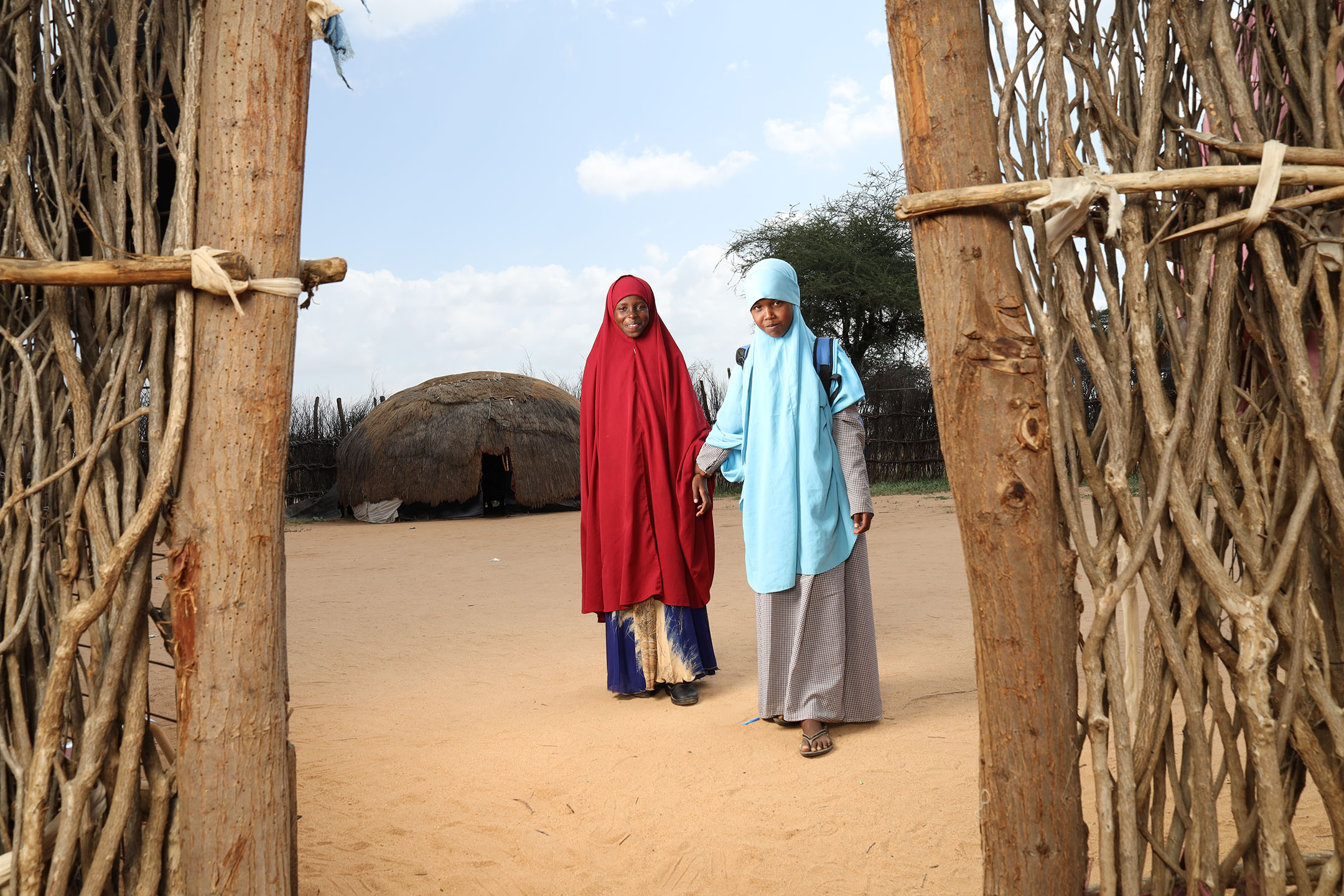A number of years ago, Janet Mweni found herself widowed following the sudden death of her husband. Without any steady job and with finances grossly inadequate, she put her head down to find ways by which to support her daughter to prepare for the Kenya Certificate of Primary Examinations (KCPE).
That girl, Leah Mweni, who has had to grow up without a father and been educated through trying circumstances, aced the KCPE, scoring 374 marks out of possible 500. Then came the dreaded part: raising school fees for the brilliant girl.
“We were so desperate we even looked for the Equity Bank’s Wings To Fly forms, which my daughter filled,” Janet narrates.
“Unfortunately, she did not qualify because that programme only sponsors students coming from public primary schools. Leah had been in a private one. So we were stuck."

Dejectedly sitting at home in Mukuru Kwa Ruben slums listening to Makala Ya Tumaini on Ruben FM, Leah heard “Come Twende Shule” (Come, Let’s Go To School) being aired. This is a project of UNICEF together with the Kenya government, NACONEK and other partners calling for out-of-school children (OOSC) to be taken to school. The programme invited parents and/or OOSCs to go to the radio station’s offices and seek help.
By this time, other children who had sat their exams with Mweni had proceeded to secondary schools while she disconsolately watched the future running away from her.
“She came to the radio station and the manager told her get me to come with a certain filled form,” Janet says. At the time, political campaigns for Kenya’s 2022 general elections were in top gear. The then Deputy President (now President) William Ruto was around soliciting for votes. With the help of the radio station, Leah went to the venue, was introduced to Dr Ruto, who pledged to sponsor her for four years through secondary school. He also promptly paid the first year’s fees. Leah is now a Form Two student at Nyakiamba Girls’ Secondary School in Nyahururu.
Nor was she the only beneficiary of Come Twende Shule campaigns. Ruben FM manager Mr Thomas Odhiambo says a member of staff, after hearing the on-air campaign, remembered a neighbour’s child stuck at home without school fees. She brought the girl, Ruth Mwongela, to the station and with the help of a Nairobi County government official, Madam Zipporah Mwangi, who once worked at Ruben Centre, got her to the Governor, Johnson Sakaja, who issued a scholarship to Ruth. She is now a student at Buruburu Girls’ Secondary School in Nairobi.
There was also the case of a little child whose mother got a stroke. The father was jobless. Since Ruben FM sends their staff into the community to talk about Come Twende Shule, a community health worker got hold of this girl who had dropped out of school in Grade 4. With the help of well-wishers, she was returned to Blue Bells Academy, a private school, since all the local public primary schools were no longer receiving new enrolments. She is now in Grade 5.
In Mukuru, the OOSC incidents have majorly affected children transitioning to junior secondary. “The new system has thrown up challenges,” says Mr Odhiambo.
“Parents have to buy new expensive uniforms and text books, among other expenses. Here at Kwa Ruben, a total of 3,500 children completed Grade 6. As we speak, the only junior secondary school in the area, AEF Ruben Primary and Junior Secondary School, has absorbed 360 of them. Fortunately, the local member of Parliament had built a private junior secondary school which the government has not yet certified to operate. He has allowed Ruben Primary to put up another 360 students there. A further 300 children went to schools outside the slum. That leaves about 2,000 stranded, just desperately walking these streets looking for hope.”
‘Come Twende Shule’ is stirring up the community to find these children and bring them to the attention of the authorities and others able to help.



